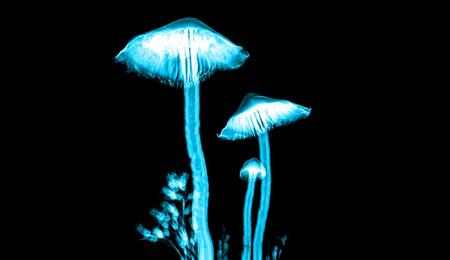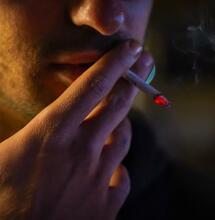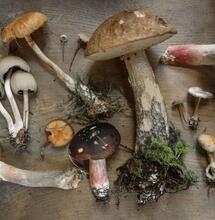Can Psilocybin Help Treat Alcohol Addiction?

Latest research gives hope magic mushrooms could help those struggling to cut down on heavy alcohol drinking. The evidence on the subject was published in the journal JAMA Psychiatry earlier this month. The clinical trial oversaw 93 participants and their excessive drinking habits over the course of 32 weeks. Psilocybin-assisted treatment was found to improve drinking outcomes in patients with alcohol use disorder, unlike those participants subjected to active placebo medication.
A recent study published in the journal JAMA Psychiatry offers new evidence for psilocybin's promise to reduce alcohol-related disorders.
Study authors conclude that psilocybin, a naturally occurring psychedelic, administered in combination with psychotherapy resulted in "robust decreases in the percentage of heavy drinking days compared with those produced by active placebo and psychotherapy."
Dr. Michael Bogenschutz, director of the NYU Langone Center for Psychedelic Medicine and the study's lead author, said in a statement that the trial itself has already made a considerable difference in the lives of some study participants.
"These are exciting results," Dr. Bogenschutz said. "Alcohol use disorder is a serious public health problem, and the effects of currently available treatments and medications tend to be small."
The double-blind, randomized trial included 93 participants, divided into two groups, and who were followed for 32 weeks. The first group received psilocybin, and the second a placebo drug in the form of antihistamine pills. All participants who entered the trial struggled with excessive drinking. The patients treated with psilocybin had their dosage determined based on weight, heart rate, and blood pressure. Each took part in 12 therapy sessions that began a couple of weeks before being subjected to the first doses and continued to sessions a month after the final dosing.
While no serious adverse side effects were reported among the participants who received the psychedelic, the study authors highlight at least one significant limitation. That study subjects could easily guess what they were given after the therapy sessions. "Biased expectancies could have influenced results," the authors wrote, "so this issue remains a challenge for clinical research on psychedelics."
The trial recruited participants aged 25 to 65 with alcohol use disorder who experienced at least four episodes of heavy drinking in the month preceding the study. Heavy drinking was defined as at least four drinks in a day for women and at least five drinks for men.
Of all study participants, 49 were given psilocybin, and 46 received the placebo medication. A reduction of 83% in heavy drinking days was observed in the group receiving psilocybin, while drinking went down by 51% in the control group. Eight months after the initial dose, 48% of the recruits subjected to psilocybin had stopped drinking entirely, compared with 24% of the placebo group.
Can Psilocybin Change How We Treat Mental Health Problems and Addiction?
The legalization of cannabis has helped boost scientific research on psychedelics such as psilocybin, along with the desire to find new treatment methods for those struggling with mental health. But the ultimate goal, unlike with cannabis, is not legal recreational use but supervised medical use.
Research efforts are undergoing to determine psilocybin capacities to treat mental health issues such as severe depression and anxiety. According to one study, "the substantial antidepressant effects of psilocybin-assisted therapy, given with supportive psychotherapy, may last at least a year for some patients."
Many believe there is a strong need for a new approach to treating issues such as depression, anxiety, and addiction. That traditional treatments merely mask the problem. Current prescription drugs can also be highly addictive, offering only temporary relief rather than genuinely dealing with the underlying problem.
So far, only a small number of cities and the state of Oregon have decriminalized psychedelic mushrooms, so there's also much to do to prepare the legal landscape and open more pathways for research on psychedelics.
The psychedelic drug market includes mushrooms, psilocybin, and LSD, among others. Even though it is still an emerging market, projections indicate psychedelics will be worth more than $10 billion as early as 2027.











